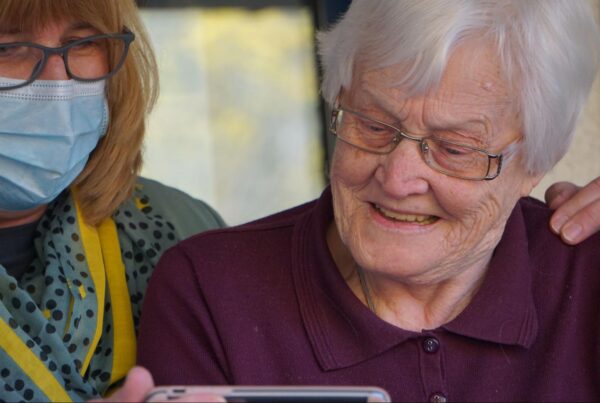As we age, our bodies become less tolerant of extreme temperatures. When winter weather hits, it’s important to take extra care of our elderly loved ones to ensure they stay safe and warm. Here are some tips for caring for an elderly parent during the winter months:
Make Sure Their Home Is Properly Insulated and Heated
This will help prevent heat from escaping and keep their home warm. Here are ways to ensure your elderly parent’s home is well insulated and heated:
- Check the insulation in the walls, attic, and floors. Make sure it’s adequate, and there are no gaps or holes.
- Inspect the heating system to ensure it’s working properly and that there’s enough fuel.
- Install weatherstripping around doors and windows to prevent drafts.
- Keep the thermostat set at a comfortable temperature and ensure there are no drafts in the room where they spend most of their time.
Keep Them Active
Many seniors experience a decline in activity during the winter due to the weather and shorter days. This can lead to a decrease in their overall health and well-being. Make sure they are getting enough exercise. Exercise is important for maintaining muscle mass, strength, and flexibility. It can also help reduce the risk of falls.
Encourage your parent to take walks, even if it’s just around the block. The fresh air and exercise will do them good. Plan regular outings and social events, so they have something to look forward to. This could be anything from lunch with friends to a movie trip.
Having a Plan in Case of an Emergency
Make sure your parent has a working landline phone. A corded phone will still work in a power outage, even if the electricity is out. Cordless phones and cell phones need electricity to operate. You can also put together an emergency kit for your parent. The kit should include non-perishable food, water, a flashlight, extra batteries, and a first-aid kit. Keep the equipment in an easily accessible place, like the kitchen or living room. Additionally, talk to your parent about their health needs and any medications they take.
Keeping Them Fed and Hydrated
Make sure their diet is balanced and nutritious. This means plenty of fruits, vegetables, whole grains, and lean protein sources like chicken or fish. Help them stay hydrated by ensuring they’re drinking enough water daily. You can also add foods with high water content to their diet, such as soups and stews. Avoid sugary drinks and empty calories from snacks.
Combating Loneliness (Help Your Parent Feel Connected)
Loneliness is a familiar feeling during the winter months. The days are shorter, and the weather is colder, making it difficult to get out and about. Combat loneliness by making sure your parent has regular social interaction. This can be achieved by arranging for friends or family members to come over for a visit, taking your parent out for lunch or coffee, or even just calling them on the phone to chat. Staying connected with others will help your parent feel less isolated and more engaged with the world around them.
Stock up on Supplies (Groceries, Medications)
Make sure to stock up on items they need, such as soups, bread, and other non-perishable items. Having extra snacks is also a good idea if your parent gets hungry between meals. Medications are another essential item to have on hand when caring for an elderly parent in the winter months. Make sure to check with their doctor to see if there are any specific medications they should take during this time.
Conclusion
These are a few tips to help care for an elderly parent during winter. If you have any questions or need assistance, please contact Advanced Health Care. We are here to help you and your family during this difficult time.






